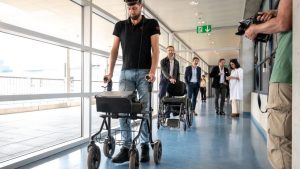The recent pan-Asia TELUS Mental Health Index (MHI) report, a collaborative endeavour by AON and TELUS Health, brings alarming figures to light. Across 12 Asian nations, 82% of workers experience moderate to high mental health risks, underscoring the urgency of addressing workplace well-being in the region.
Mental Distress: A Productivity Dampener
According to the MHI report, an estimated 45% of respondents reveal that their mental health adversely impacts their job performance. With growing pressures at home, work, and in social spheres, coupled with the COVID-19 pandemic’s repercussions and the prevailing stigma surrounding mental health, it’s no wonder that:
- 51% of employees feel a heightened sensitivity to stress than the previous year.
- 45% opine that their peers exhibit increased stress symptoms.
- 33% face challenges focusing on their tasks.
- And an alarming 47% finish their workdays mentally and/or physically drained.
The Stigma’s Stranglehold
The study portrays a grim reality where 54% of respondents fear limited career progression if employers were informed of their mental health issues. Additionally, 49% worry about friends and family treating them differently and harbour negative self-perceptions due to their mental health struggles.
Tim Dwyer, CEO, Health Solutions, Asia Pacific, Aon, emphasised the repercussions for organisations ignoring or undermining the impact of mental health. “Supporting employees’ wellbeing is necessary for organisations to maintain high levels of engagement and productivity to deliver measurable return on investment. “
Barriers to Mental Health Support
While early intervention can mitigate the adverse effects of deteriorating mental health, barriers persist:
- 43% identify cost as the primary obstacle in seeking mental health aid.
- A significant number lack knowledge about obtaining assistance.
- Stigma remains a pressing concern, with individuals apprehensive about societal judgments.
Jamie MacLennan, Managing Director of APAC, TELUS Health, remarked, “Addressing the mental health and wellbeing of staff is no longer a ‘nice to have’ – rather, it is a commercial imperative.”
Singapore: A Case Study
Singapore’s statistics from the report are particularly disconcerting:
- 43% of Singaporeans report a negative impact on work due to mental health.
- 49% end workdays feeling mentally or physically drained.
- 33% and 32%, respectively, experience feelings of anxiety and isolation.
- 64% fear potential career limitations if employers know their mental health conditions.
Singapore MHI score by Manager/Non-manager
| Job role | MHI score |
| Manager | 64.7 |
| Non-manager | 60.9 |
Singapore MHI score by Industry
| Industry | MHI score |
| Tourism, Food and Beverage | 69.4 |
| Education | 68.6 |
| Pharmaceuticals, Life Sciences, Healthcare | 64.4 |
| Manufacturing and General Industry | 64.1 |
| Professional Services | 62.8 |
| Transportation and Warehousing | 62.2 |
| Retail | 62.0 |
| Other Services | 61.8 |
| Real Estate, Rental and Leasing | 61.2 |
| Utilities | 60.6 |
| Financial Services and Insurance | 60.1 |
| Government | 59.9 |
| Information and Cultural Industries | 59.8 |
| Arts, Entertainment and Recreation | 59.6 |
Survey Mechanics and Details
The comprehensive online survey, covering regions including China, Hong Kong, India, and more, garnered responses from over 13,000 participants. Launched initially in countries like Australia and the UK, the TELUS Mental Health Index expanded its reach to Singapore and other Asian nations in subsequent years.
In Focus: Singapore’s Sectoral Analysis
Singapore’s sectoral insights reveal that managers fare better in mental health than non-managers. While sectors like Tourism and Pharmaceuticals exhibit lower mental health risks, industries such as Government and Entertainment depict the highest mental health challenges.
In Conclusion
Asia’s workplace mental health scenario necessitates urgent, data-informed interventions. As organisations grapple with these findings, a comprehensive, empathetic approach to employee well-being becomes paramount. The economic and social imperatives align: mental health can no longer be a sideline concern. It’s central to the future of work in Asia.












